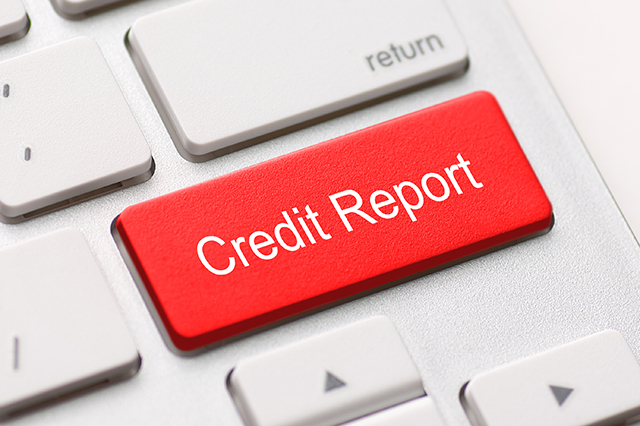Having a healthy credit history and understanding your credit report are important steps to maintaining your financial well-being.
Consumers with strong credit ratings often benefit from easy access to credit and lower interest rates. Checking your credit report lets you assess how you’re doing and gives you an idea of what to expect the next time you apply for a loan or a credit card. It can also alert you to potentially inaccurate information, such as fraudulent borrowing by an identity thief.
Here’s a quick rundown of what you can expect when you check your credit report.
What is a credit report?
The U.S. Consumer Financial Protection Bureau says it as well as anyone: A credit report contains information about your credit such as loan payment history and the status of your credit accounts. Lenders use these reports to make lending decisions.
Who compiles these reports?
The three largest providers of consumer reports in the U.S. are Equifax, Experian and TransUnion.
How can I get my reports?
Under the Fair Credit Reporting Act, you’re entitled to a free copy of your credit report every 12 months. Many consumers request their reports through www.AnnualCreditReport.com, the only credit report website authorized by federal law.
You can request one, two or all three of your reports – one from each credit bureau. You’ll need to enter your name, Social Security number and address before answering a series of identity verification questions based on your borrowing history.
Understanding your credit report
Knowing what you’ll see is a big part of understanding your credit report.
Your credit report will contain payment history on credit cards, mortgages, auto loans and student loans, among other types of debt. It will also show how much credit you have available, how much credit you’re using, information from debt collectors and debt buyers and public information, such as court judgments and bankruptcies.
Credit inquiries will be highlighted, too. Some reports differentiate between hard and soft inquiries.
Hard inquiries are typically those made by lenders in response to a request for credit. Auto loans, mortgages and credit cards are examples of borrowing that will trigger hard inquiries. Several hard inquiries in a short period of time for credit cards can negatively affect your credit score, although shopping for a mortgage or auto loan within a short period will be reviewed as only one inquiry. It’s considered smart consumerism.
Soft inquiries are generated following an auto insurance application (in certain states), or by lenders looking to send you promotional offers or raise your credit limit on their own, to name a few examples. Soft inquiries, which include reviewing your own credit, do not generally impact your score.
The most important thing to do when looking at a report is confirm the accuracy of information. The CFPB advises consumers to check that information in your credit report is only about you, and to keep an eye out for any inaccurate or incomplete information. Check for addresses where you did not live, names of employers you didn’t work for and any information that should no longer be on your report, such as derogatory information older than seven years or a bankruptcy older than 10 years. Generally, information reported within 90 days is considered current.

What if I see something inaccurate?
Consumers can dispute information on their credit reports that they believe to be inaccurate. Some online reports will allow you to file a discrepancy by clicking a link, and all three credit bureaus have dedicated websites for filing disputes.
Credit bureaus must investigate items in question, according to the Federal Trade Commission, typically within 30 days unless the request is deemed frivolous. If your dispute is valid, the company that provided the inaccurate information to the credit bureau – for example, your credit card company or auto loan lender – must notify all three credit bureaus. Once your report is updated, you are entitled to a free copy of your report from the bureau you filed your dispute with, and this free report does not count as your free annual report.
If you find inaccurate information, you aren’t alone. In May 2016, the CFPB highlighted credit reporting in its monthly complaints snapshot. More than three-quarters of credit reporting complaints received by the bureau related to incorrect information on consumers’ credit reports.
In early 2013, the Federal Trade Commission reported that 5 percent of consumers had errors on one of their reports that could potentially result in higher borrowing costs.
Where is my score?
Many people checking their credit report are interested in knowing their credit scores. Lenders use these numbers to determine an individual’s credit worthiness. The models used by each credit bureau differ from one another, which typically leads to different scores. Models can differ depending on the type of credit you’re requesting, too.
Your credit report does not contain your credit score. You can track down your credit score in a few different ways. Some credit card companies provide consumers a score on their monthly statements, while FICO scores are available for purchase.
Consumers should be careful using any service that offers free credit scores. In January 2017, the CFPB ordered TransUnion and Equifax to pay more than $17.6 million in restitution and $5.5 million in fines for deceiving consumers about the usefulness and actual cost of credit scores sold to consumers.
Scores sold to consumers were not the same ones used by lenders, announced the CFPB, and some consumers who signed up for free credit scores were automatically enrolled in a subscription program that charged them every month unless they canceled.
Always remember that no consumer has a single credit score.
Do you still have questions about accessing or understanding a credit report? Let us know in the comments below.
To learn about all of the financial services that AAA can provide, visit AAA.com/Financial.
















